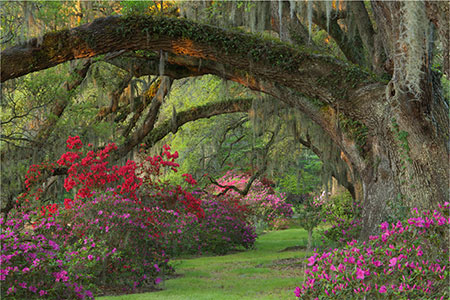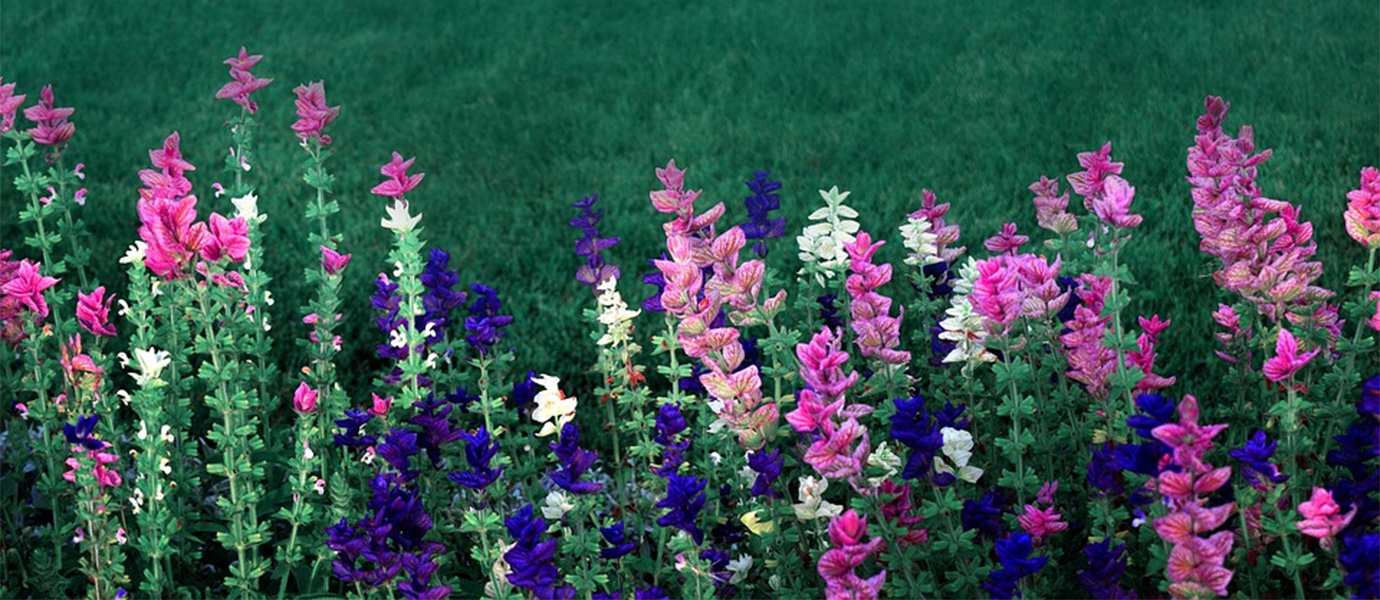
School
Learn about native plants and animals on the Nature Train and Nature Boat tours, or choose from a history tour. Explore the 18th century house, or go on a tour of five former slave cabins. Trips include admission to the Zoo and Nature Center, where your group can learn about indigenous wildlife on the plantation, and see reptiles in the Reptile House.
supports classroom learning in:
Environmental Studies, Social Studies.
topics covered:
Plants, Animals, Colonial History, Civil War, Slavery.
contact info
Phone: 843-571-1266
Email: [email protected]
INFO
ABOUT
Magnolia Plantation & Gardens
Founded in 1676 by the Drayton family, Magnolia Plantation has survived for centuries and witnessed the history of our nation from the American Revolution through the Civil War and beyond. It’s the oldest public tourist site in the Lowcountry, and the oldest public gardens in America, opening its doors to visitors in 1870 to view the thousands of beautiful flowers and plants.
contact info
Hrs: Nov.-Feb. Daily 8:30AM-4:30PM, Mar.-Oct. Daily 8AM-5:30PM.
HELPFUL LESSON PLAN(S)
Prepared by FieldTripDirectory.com
Botanical Garden Lesson Plan
FUN FACTS
The diverse world of plants is perhaps the weirdest, and most fascinating, of all living things. Bamboo can grow over three feet in one day (you can literally watch it grow). There are 600 species of carnivorous plants, which trap and digest insects, frogs, or small birds (if a vegetarian eats this plant, are they still a vegetarian?). The world’s largest flower, Rafflesia, can grow up to three feet in diameter (how big would a bouquet be…). Do a little digging on your next trip to a botanical garden (not literally!), and see what interesting plant facts you can find.
View Lesson Plan>>
Scouts
Learn about native plants and animals on the Nature Train and Nature Boat tours, or choose from a history tour. Explore the 18th century house, or go on a tour of five former slave cabins. Trips include admission to the Zoo and Nature Center, where your group can learn about indigenous wildlife on the plantation, and see reptiles in the Reptile House.
supports scout badges in:
Environmental Science, Social Studies.
topics covered:
Plants, Animals, Colonial History, Civil War, Slavery.
contact info
Phone: 843-571-1266
Email: [email protected]
INFO
ABOUT
Magnolia Plantation & Gardens
Founded in 1676 by the Drayton family, Magnolia Plantation has survived for centuries and witnessed the history of our nation from the American Revolution through the Civil War and beyond. It’s the oldest public tourist site in the Lowcountry, and the oldest public gardens in America, opening its doors to visitors in 1870 to view the thousands of beautiful flowers and plants.
contact info
Hrs: Nov.-Feb. Daily 8:30AM-4:30PM, Mar.-Oct. Daily 8AM-5:30PM.
HELPFUL LESSON PLAN(S)
Prepared by FieldTripDirectory.com
Botanical Garden Lesson Plan
FUN FACTS
The diverse world of plants is perhaps the weirdest, and most fascinating, of all living things. Bamboo can grow over three feet in one day (you can literally watch it grow). There are 600 species of carnivorous plants, which trap and digest insects, frogs, or small birds (if a vegetarian eats this plant, are they still a vegetarian?). The world’s largest flower, Rafflesia, can grow up to three feet in diameter (how big would a bouquet be…). Do a little digging on your next trip to a botanical garden (not literally!), and see what interesting plant facts you can find.
View Lesson Plan>>
Camp
Learn about native plants and animals on the Nature Train and Nature Boat tours, or choose from a history tour. Explore the 18th century house, or go on a tour of five former slave cabins. Trips include admission to the Zoo and Nature Center, where your group can learn about indigenous wildlife on the plantation, and see reptiles in the Reptile House.
topics covered:
Plants, Animals, Colonial History, Civil War, Slavery.
contact info
Phone: 843-571-1266
Email: [email protected]
INFO
ABOUT
Magnolia Plantation & Gardens
Founded in 1676 by the Drayton family, Magnolia Plantation has survived for centuries and witnessed the history of our nation from the American Revolution through the Civil War and beyond. It’s the oldest public tourist site in the Lowcountry, and the oldest public gardens in America, opening its doors to visitors in 1870 to view the thousands of beautiful flowers and plants.
contact info
Hrs: Nov.-Feb. Daily 8:30AM-4:30PM, Mar.-Oct. Daily 8AM-5:30PM.
HELPFUL LESSON PLAN(S)
Prepared by FieldTripDirectory.com
Botanical Garden Lesson Plan
FUN FACTS
The diverse world of plants is perhaps the weirdest, and most fascinating, of all living things. Bamboo can grow over three feet in one day (you can literally watch it grow). There are 600 species of carnivorous plants, which trap and digest insects, frogs, or small birds (if a vegetarian eats this plant, are they still a vegetarian?). The world’s largest flower, Rafflesia, can grow up to three feet in diameter (how big would a bouquet be…). Do a little digging on your next trip to a botanical garden (not literally!), and see what interesting plant facts you can find.
View Lesson Plan>>
Homeschool
Learn about native plants and animals on the Nature Train and Nature Boat tours, or choose from a history tour. Explore the 18th century house, or go on a tour of five former slave cabins. Trips include admission to the Zoo and Nature Center, where your group can learn about indigenous wildlife on the plantation, and see reptiles in the Reptile House.
supports classroom learning in:
Environmental Studies, Social Studies.
topics covered:
Plants, Animals, Colonial History, Civil War, Slavery.
contact info
Phone: 843-571-1266
Email: [email protected]
INFO
ABOUT
Magnolia Plantation & Gardens
Founded in 1676 by the Drayton family, Magnolia Plantation has survived for centuries and witnessed the history of our nation from the American Revolution through the Civil War and beyond. It’s the oldest public tourist site in the Lowcountry, and the oldest public gardens in America, opening its doors to visitors in 1870 to view the thousands of beautiful flowers and plants.
contact info
Hrs: Nov.-Feb. Daily 8:30AM-4:30PM, Mar.-Oct. Daily 8AM-5:30PM.
HELPFUL LESSON PLAN(S)
Prepared by FieldTripDirectory.com
Botanical Garden Lesson Plan
FUN FACTS
The diverse world of plants is perhaps the weirdest, and most fascinating, of all living things. Bamboo can grow over three feet in one day (you can literally watch it grow). There are 600 species of carnivorous plants, which trap and digest insects, frogs, or small birds (if a vegetarian eats this plant, are they still a vegetarian?). The world’s largest flower, Rafflesia, can grow up to three feet in diameter (how big would a bouquet be…). Do a little digging on your next trip to a botanical garden (not literally!), and see what interesting plant facts you can find.
View Lesson Plan>>
